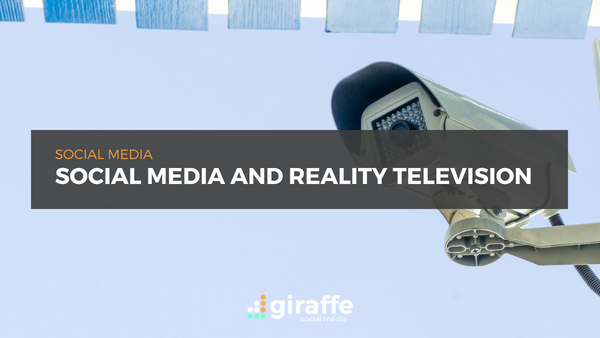Social media and reality television can sometimes feel one in the same. They’re both in our lives 24/7, some understand it, some don’t and most importantly they are both big influences on the lives of the people that view and interact with them.
Social media and reality TV have also both dramatically changed the way we are entertained and how we see the world. In some ways you are the reality star of your own social media.
Big Spoiler
Social media has pushed reality TV into a new age. Before people could tweet about their favourite contestant, they simply tuned into the television every night to see how their TV star was getting on. Now, there are spoilers everywhere. We can see clips from other reality TV shows around the world, such as some pretty dramatic programmes in Australia. TV channels often show intriguing snippets on their Facebook pages and Instagram feeds, so that people will tune in to see the rest of the episode – it’s simple, yet so effective. Social media is the great big spoiler and even opening Facebook means you could see something that’ll ruin a programme for you.
The Social Media Factor
Most shows now have accompanying apps that allow viewers to vote for their winner through them. Instead of phoning in to decide who should be evicted, people can simply tap their smart phone and their vote counts. Reality TV shows create a community, that makes watchers feel part of the programme too and social media is a key passageway to do this. With shows like The X Factor and Britain’s Got Talent, it’s impossible to open Facebook and not see a video clip of someone singing or performing a death-defying act, then two hours later you’re tuning in to see their story unfold.
Social Media Island
Facebook, Instagram and Twitter have boosted this craving for reality TV. There are GIFs from the show’s best bits, live streams, ways to interact with contestants on Twitter and Instagram and hashtags designed for the shows themselves. Shows like Love Island have dominated social media so much, that it’s impossible to go onto Twitter and not see a Love Island related hashtag trending every night.
Sometimes it’s actually a bit too much, even for those that watch it. However, the bombardment works and makes us feel even more part of the show. When reality TV and social media mixes, it becomes a talking point: “I saw this tweet…”, “No way!” You can switch off your laptop and TV when the show finishes, then log in to Twitter and search for who is talking about the show – you can fully immerse yourself 24/7, like the reality stars themselves.
Social Media’s Got Talent
Reality TV stars also user social media for their own advantage – to gain popularity. Even when a contestant is in the show, family, friends and agents will work their magic on the star’s social media platforms, to help them gain a following before the episode has even aired. Also, many reality TV stars become Instagram influencers for clothing or health brands when they come out of the shows. Fashion brands pick the reality celebs up the moment they come out and urge them to wear their clothes and swimwear and tag the brand in the post. A big example of this is in this year’s Love Island, where a big fashion brand has paid to put all their clothes into the stars’ wardrobes and, of course, have been advertising the clothes on the outside to the reality show’s audience.





